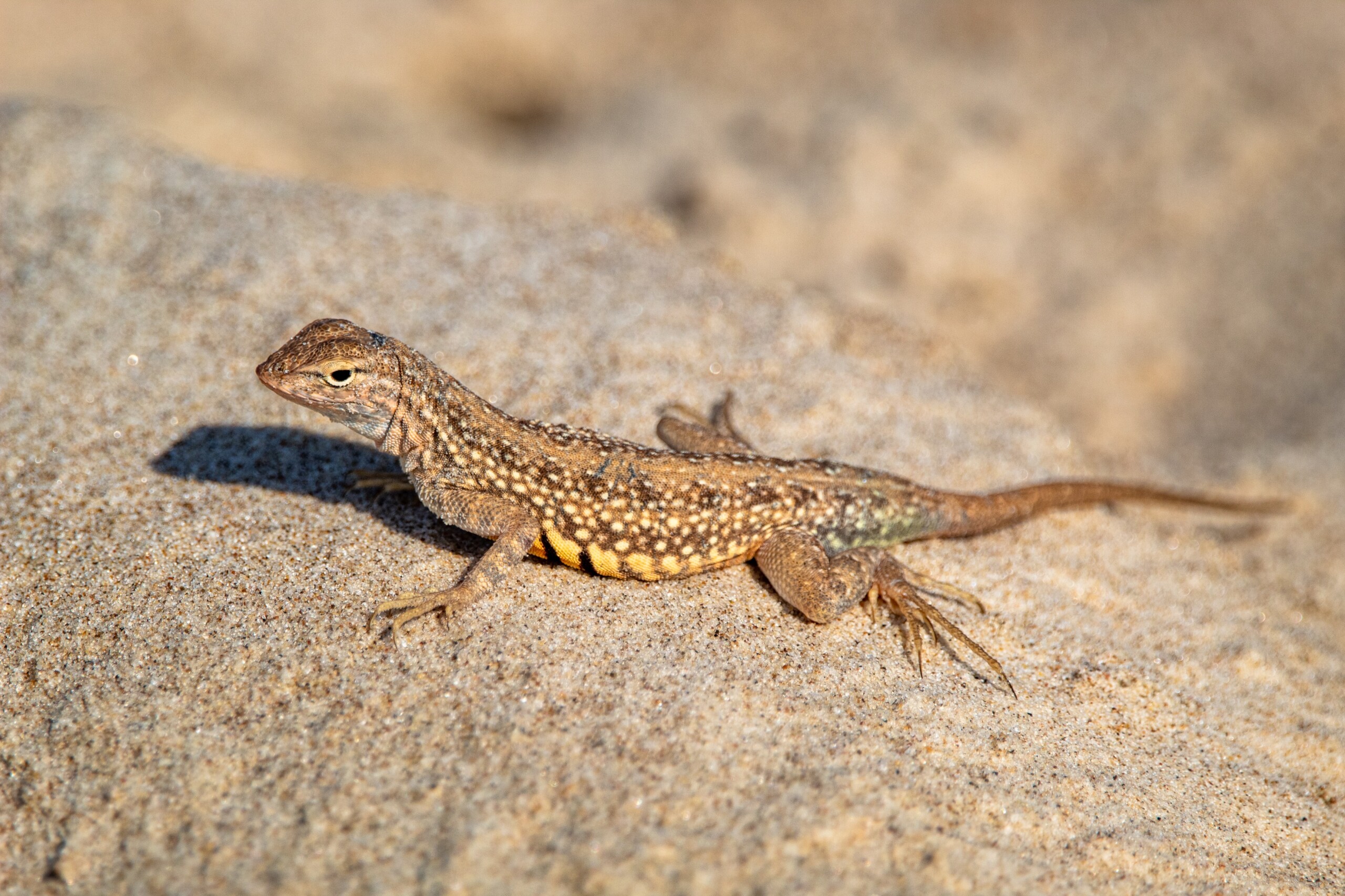Weekly Newsletter |July 26, 2019
Issues
Conservation groups to sue over West Texas lizard as ESA listing decision looms. Last week, two conservation groups filed a notice to sue the Trump administration over the dunes sagebrush lizard’s Endangered Species Act status. Defenders of Wildlife and Center for Biological Diversity claim development in Texas and New Mexico jeopardize the lizard’s habitat and warrants an endangered listing for the species.
The dunes sagebrush lizard lives in sand dunes covered in scrubby oak trees known as shinnery in eastern New Mexico and West Texas. According to the Fish and Wildlife Service (FWS), the lizard’s habitat shrunk by 40% between 1980 and 2010, and though the agency has considered listing it as an endangered species, FWS has erred on the side of conservation management. In 2012, Texas Comptroller of Public Accounts Susan Combs worked out an agreement with FWS to adopt a voluntary management plan in 2012 to protect the lizard’s territory.
However, the plan was later rescinded as ineffective in late 2018 by current Texas Comptroller of Public Accounts Glenn Hegar; the comptroller’s office is now working on a replacement with FWS. The conservation groups say in their petition that the state failed to account for sand mining in its original conservation plan. They also say the state used confidentiality laws to shield information about the program’s participants from the public, making it hard to evaluate the effort’s effectiveness.
But industry continues to pushback. Featured in the Midland Reporter-Telegram, Permian Basin Petroleum Association (PBPA) President Ben Shepperd rebuffed the conservation groups’ claims, pointing to collaboration between local government and industry to protect the lizard’s habitat. “Members of the Permian Basin Petroleum Association are dismayed to learn that the Defenders of Wildlife and the Center for Biological Diversity intend to file suit over the dunes sagebrush lizard,” Shepperd notes. “We strongly believe that the conservation efforts industry has led continue to provide protections for the lizard. The PBPA is committed to protecting the oil and gas industry’s right to operate as well as protecting the lizard’s habitat in meaningful ways.”
The groups petitioned FWS last year to list the lizard as an endangered species and the given notice says they’ll sue the agency within the next two months to force a decision. In response, IPAA noted how “Voluntary conservation efforts, led by the oil and natural gas industry, have evolved in the last decade in a way that emphasizes measurable protections of imperiled species and ecosystems that allows for responsible development to coexist. Recognizing the economic importance of the Permian Basin, the largest oil basin in the United States, IPAA member companies remain committed partners in species and habitat conservation across New Mexico and Texas.”
In the News
Bernhardt secretly signs land swap for Alaska refuge road. E&E News, Sub req’d. Interior Secretary David Bernhardt has once again revived a proposed land exchange that would clear the way for a controversial gravel road to be built through wilderness within Alaska’s Izembek National Wildlife Refuge. Bernhardt, without any notice to the public, quietly signed a new land exchange agreement with King Cove Corp. on July 3 — nearly two weeks before the Interior Department dropped an appeal of a federal judge’s ruling that tossed out a similar agreement signed by then-Interior Secretary Ryan Zinke. Judge Sharon Gleason of the U.S. District Court for the District of Alaska concluded in a ruling last March that the Zinke agreement violated the Administrative Procedure Act because Interior had failed to justify the change in policy from the Obama administration, which found the road would be too destructive (E&E News PM, March 29).
Hearings set on waterfronts, coasts and Western storage. E&E News, Sub req’d. Lawmakers will discuss waterfront recreation, debate bills about America’s coasts and review the Bureau of Reclamation’s infrastructure funding at a trio of hearings this week. Senators on the Commerce, Science and Transportation Subcommittee on Science, Oceans, Fisheries and Weather will address “economic, recreational and environmental challenges” in a hearing tomorrow. It will focus on the state of the nation’s working waterfronts and how best to balance the competing needs of industry and recreation. Similar issues will likely be discussed in a legislative hearing of the House Natural Resources Subcommittee on Water, Oceans and Wildlife. Among the nine bills to be considered is H.R. 3596, from Rep. Chellie Pingree (D-Maine), to amend the Coastal Zone Management Act of 1972 to establish a working waterfront task force and a working waterfronts grant program.
Salamander plans hint at ESA’s future. E&E News, Sub req’d. Fish and Wildlife Service plans for an aquatic North Carolina salamander that regurgitates its meals showcase a flexible approach to protecting troubled species. Dubbed a 4(d) rule, the approach allows the FWS to tailor protections for species listed as threatened under the Endangered Species Act. Some habitat-related activities, like tree thinning, might be allowed that would be more constrained for species listed as endangered. In a public comment period that ended at 11:59 p.m. last night, a proposed listing as threatened and an accompanying 4(d) rule for the Neuse River waterdog caused hardly a ripple. “It would seem that incorporating the North Carolina [programs] in a 4d Rule can provide some level of certainty and assurance for landowners and forest operators, while avoiding the need to institute additional regulatory governance,” the North Carolina Forest Service wrote.
Trump administration to look at endangered species in GoM. Kallanish Energy. The Trump administration has agreed to complete a legally required consultation about the impacts of offshore oil and gas drilling in the Gulf of Mexico on whales and other threatened and endangered wildlife, Kallanish Energy reports. Under the recent agreement, the National Marine Fisheries Service will issue a biological opinion by Nov. 5, 2019. That opinion is expected to include additional safeguards to prevent further harm to whales, sea turtles and other threatened and endangered species from oil and gas operations in the Gulf. “This administration has been acting as if the Deepwater Horizon disaster had no effect on the Gulf,” said attorney Chris Eaton, with Earthjustice, in a statement. “We hope this long-overdue assessment will inject some accurate facts and science into the government’s offshore drilling decisions.”




